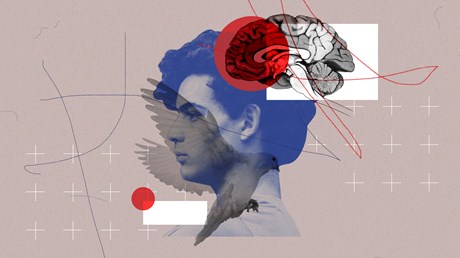Why do we feel such a palpable sense of spiritual relief when the problem is with the body rather than the mind?

Five years ago I received a telephone call from a friend. She told me that one of our mutual friends had taken his own life. No one knew why.
Brian was a successful health-care professional, with a wife, a family, and an apparently very bright future. Many of us had not seen any indications that something was wrong, although those in close contact with him knew there were problems. He just got up one morning and was never seen alive again. Everyone was devastated.
What do you do with such news? One of the most painful human experiences must be to say goodbye to a loved one in the morning and then never see that person alive again. I was asked to do the sermon at the celebration of Brian’s life. I preached on the psalms of lament and the unending, unfailing love of God. I tried to help people see that the joy that God promises includes suffering and that the psalms of lament offer faithful language to express our hurt, brokenness, anger, and disappointment at what my friend had done and what God had seemingly not done: save him.
Two Affirmations
Brian was a Christian; he was a lover of Jesus, as were his family and many of his friends. And yet, despite the profound consolation of the gospel, for some, the first response to his death by suicide was not comfort but fear. In spite of the apostle Paul’s firm assurance that “neither death nor life, neither angels nor demons, neither the present nor the future, nor any powers, neither height nor depth, nor anything else in all creation, will be able to separate us from the love of God that is in Christ Jesus our Lord” (Rom. 8:38–39), they were afraid for Brian’s eternal future. I guess that is the problem with hypercognitive theologies that assume …
